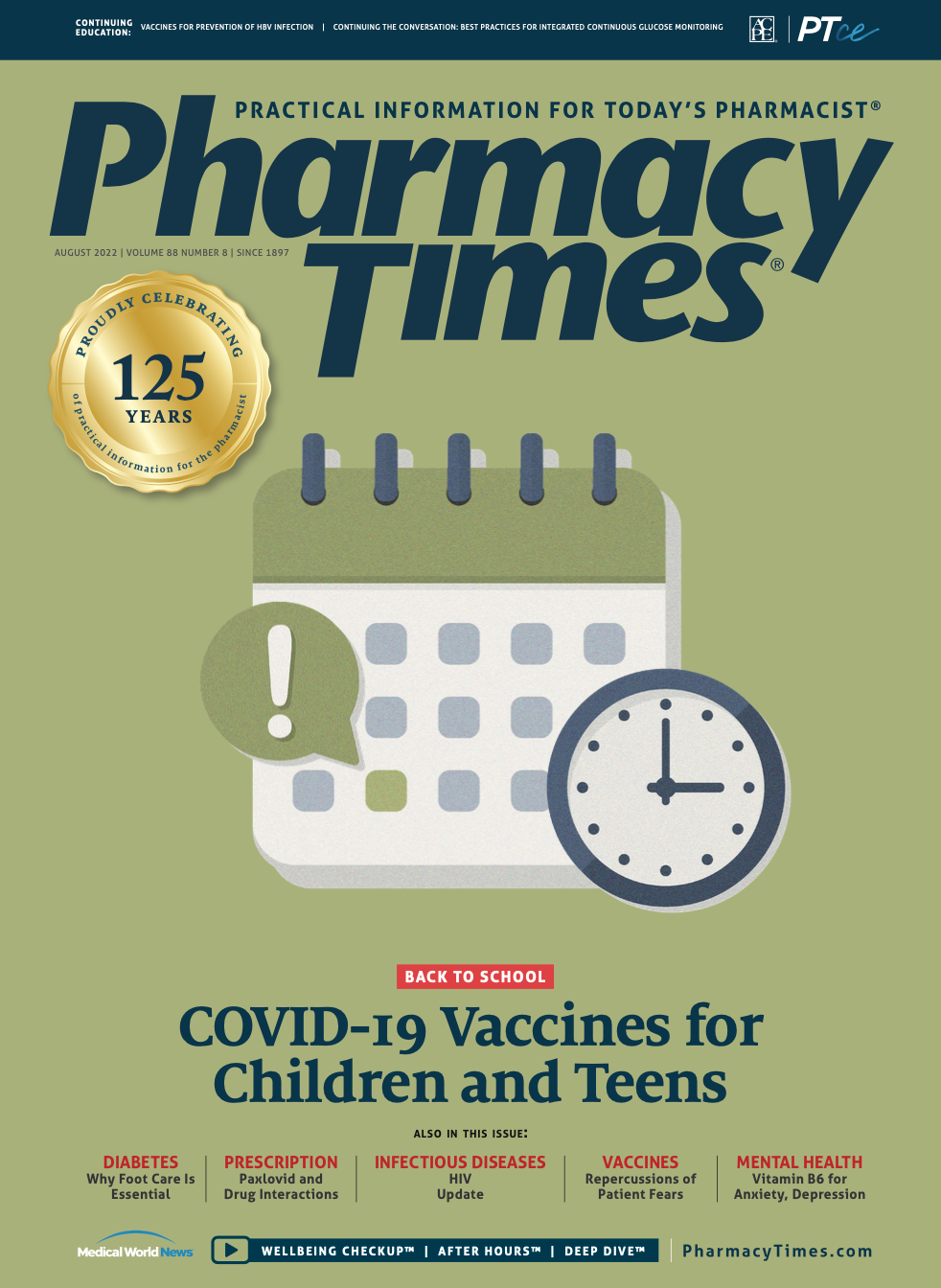Dartisla ODT From Edenbridge Pharmaceuticals
The FDA has approved glycopyrrolate orally disintegrating tablets (Dartisla ODT; Edenbridge Pharmaceuticals) to reduce symptoms of peptic ulcer as an adjunct to peptic ulcer treatment in adults.
The FDA has approved glycopyrrolate orally disintegrating tablets (Dartisla ODT; Edenbridge Pharmaceuticals) to reduce symptoms of peptic ulcer as an adjunct to peptic ulcer treatment in adults. The approval carries the lim- itation that Dartisla ODT is not indicated as monotherapy for treatment of peptic ulcer because its effectiveness in peptic ulcer healing has not been established.1
Pharmacology and Pharmacokinetics
Dartisla ODT is an anticholinergic agent that inhibits the action of acetylcholine on the parietal cells in the stomach and decreases the acidity and volume of gastric secretions. Its median time to maximum plasma concentration is 3 hours, and it displays a mean plasma elimination half-life of 2.8 hours.1
Dosage and Administration
Patients using 2 mg of another oral tablet dosage form of glycopyrrolate may be switched to Dartisla ODT. Dartisla ODT is not recommended for patients who are beginning glycopyrrolate treatment or using maintenance treatment with a lower dose of another oral glycopyrrolate product. The recommended dose of Dartisla ODT is 1.7 mg, 2 or 3 times daily, with a maximum daily dose of 6.8 mg. The tablet should be placed on top of the tongue, allowed to disintegrate, and swallowed without water. Each dose should be taken at least 1 hour before or 2 hours after eating. The lowest effective dose should be used to control symptoms, and patients who can be titrated to a lower dose should be switched to another oral tablet dosage form of glycopyrrolate.1
Clinical Trials
Dartisla ODT is a 505(b)(2) branded product. The FDA initially approved glycopyrrolate in 1961, and Dartisla ODT is the first orally disintegrating tablet formulation of the drug. Dartisla ODT uses a proprietary delivery technology, resulting in a freeze-dried tablet that dissolves almost instantly in the mouth without water.1,2
Contraindictions, Warnings, and Precautions
The use of Dartisla ODT is contraindicated in patients with hypersensitivity to glycopyrrolate or any of the inactive ingredients. The medication is also contraindicated in patients who are at risk for anticholinergic toxicity because of underlying medical conditions, such as active inflammatory or infectious colitis, which can lead to toxic megacolon; bleeding gastrointestinal (GI) ulcer, GI motility disorders, glaucoma, history of or current toxic megacolon, mechanical obstructive diseases of the GI tract, myasthenia gravis, or obstructive uropathies, including prostatic hypertrophy.
Glycopyrrolate may cause increased intraocular pressure in patients with glaucoma and may reduce the effects of antiglaucoma medications. Dartisla ODT may worsen intestinal mechanical obstruction. Constipation, delayed gastric emptying, and intestinal pseudo-obstruction may occur and aggravate or precipitate paralytic ileus and toxic megacolon. Glycopyrrolate may cause blurred vision and drowsiness, which can impair mental and/or physical capabilities.
Patients should avoid hazardous tasks, such as driving or operating machinery, until they are reasonably certain that they are not adversely affected. In very warm environments, heat prostration resulting in fever and heat stroke can occur, especially in older patients. Dartisla ODT should not be used in patients with conditions exacerbated by anticholinergic adverse reactions, such as autonomic neuropathy, cardiac disease, hiatal hernia, and hyperthyroidism. Because of an increased risk of anticholinergic adverse reactions, Dartisla ODT is not recommended for use in older patients and may be contraindicated in some older patients with underlying medical conditions. Patients with renal impairment should be monitored for anticholinergic adverse reactions, and Dartisla ODT should be discontinued if anticholinergic adverse reactions occur. Dartisla ODT should not be used concomitantly with agents that exhibit altered absorption when gastrointestinal motility is decreased. Patients should avoid concomitant use of other anticholinergic medications or solid oral dosage forms of potassium chloride. Adverse reactions include blurred vision, constipation, decreased sweating, drowsiness, dry mouth, flushing, tachycardia, urinary retention, and vomiting.1
About The Author
Monica Holmberg, PharmD, BCPS, is a pharmacist in Phoenix, Arizona, and Pharmacy Times® contributor.
References
1. Dartisla. Prescribing information. Edenbridge Pharmaceuticals; 2021. Accessed May 10, 2022. https://dartislahcp.com/documents/DARTISLA-ODT-Prescribing-Information.pdf
2. Edenbridge Pharmaceuticals announces U.S. FDA approval of Dartisla ODT (glycopyrrolate) orally disintegrating tablets. News release. Edenbridge Pharmaceuticals. December 17, 2021. Accessed May 20, 2022. https://www.businesswire.com/news/home/20211217005400/en

